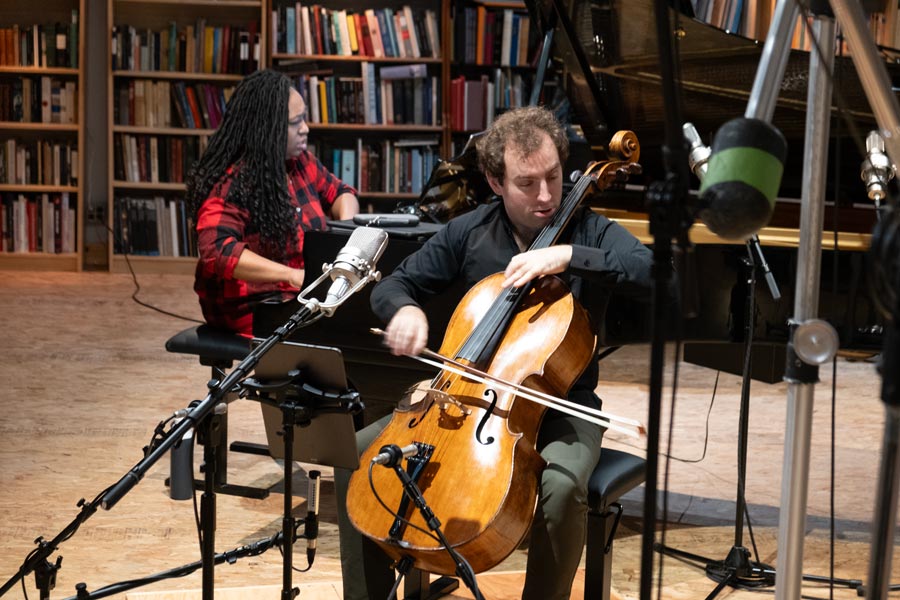Our Stories
Andrea Casarrubios composer
Sebastian Quesada composer
Kevin Day composer
Mario Oyanadel composer
Carlos Carrillo composer
Michelle Cann piano
Thomas Mesa cello
Featuring cellist Thomas Mesa and pianist Michelle Cann, OUR STORIES from Navona Records aims to raise the voices of composers and performers from backgrounds traditionally underrepresented in classical music. Made possible by PARMA Recordings and a Sphinx MPower Grant, this release musically conveys a diverse mixture of themes and topics, from the intricacies and curiosities of human communication to fear-inducing information prevalent in the media, reflections on the acceptance of life’s inevitable changes and losses, and more. Dive in and explore the masterful contemporary works of Andrea Casarrubios, Carlos Carrillo, Kevin Day, Sebastian Quesada, and Mario Oyanadel.
Listen
Stream/Buy
Choose your platform

Experience in Immersive Audio
This album is available in spatial audio on compatible devices.
Stream now on Apple Music, Tidal, and Amazon Music.
Track Listing & Credits
| # | Title | Composer | Performer | |
|---|---|---|---|---|
| 01 | Silbo for Cello and Piano | Andrea Casarrubios | Michelle Cann, piano; Thomas Mesa, cello | 5:32 |
| 02 | Nerv! Toccata for Cello and Piano | Sebastian Quesada | Michelle Cann, piano; Thomas Mesa, cello | 8:18 |
| 03 | Cello Sonata: I. Allegro Agitato | Kevin Day | Michelle Cann, piano; Thomas Mesa, cello | 5:58 |
| 04 | Cello Sonata: II. Lento | Kevin Day | Michelle Cann, piano; Thomas Mesa, cello | 5:58 |
| 05 | Cello Sonata: III. Giocoso | Kevin Day | Michelle Cann, piano; Thomas Mesa, cello | 4:33 |
| 06 | Tres Campanas de Rere (Three Bells from Rere) | Mario Oyanadel | Michelle Cann, piano; Thomas Mesa, cello | 7:31 |
| 07 | Will the Quiet Times Come | Carlos Carrillo | Michelle Cann, piano; Thomas Mesa, cello | 7:48 |
Tracks 1-5
Recorded December 7-8, 2022 at Oktaven Audio in Mount Vernon NY
Session Producer, Editing and Mixing Brad Michel
Session Engineer Ryan Streber
Tracks 6-7
Recorded April 27, 2023 at Oktaven Audio in Mount Vernon NY
Session Producer, Editing and Mixing Brad Michel
Session Engineer Edwin Kenzo Huet
Mastering Brad Michel
Immersive Audio Engineer Brad Michel
Made possible by Sphinx through the Sphinx MPower grant
![]()
Executive Producer Bob Lord
A&R Director Brandon MacNeil
A&R Chris Robinson, Danielle Sullivan
VP of Production Jan Košulič
Audio Director Lucas Paquette
Production Director Levi Brown
Production Manager Martina Watzková
Production Assistant Adam Lysák
VP, Design & Marketing Brett Picknell
Art Director Ryan Harrison
Design Edward A. Fleming
Publicity Aidan Curran
Digital Marketing Manager Brett Iannucci
Artist Information
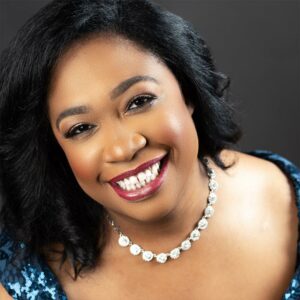
Michelle Cann
Lauded as “technically fearless with…an enormous, rich sound” (La Scena Musicale), pianist Michelle Cann made her orchestral debut at age fourteen and has since performed as a soloist with prominent orchestras such as the Atlanta and Cincinnati symphony orchestras, The Cleveland Orchestra, the New Jersey Symphony, and The Philadelphia Orchestra.
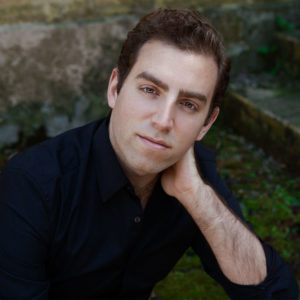
Thomas Mesa
Cuban-American cellist Thomas Mesa has established himself as one of the most charismatic, innovative, and engaging performers of his generation. Mesa was the winner of the $50,000 First Prize in the 2016 Sphinx Competition; the Thaviu Competition for String Performance (Chicago, 2013); The Astral Artists 2017 National Auditions; and the Alhambra Orchestra Concerto Competition. He has appeared as soloist with orchestras in the United States and Mexico, including the Los Angeles Philharmonic at the Hollywood Bowl, Santa Barbara Symphony, Southwest Florida Symphony Orchestra, and the Cleveland Orchestra, which received this rave review from the Cleveland Plain Dealer: “A listener with closed eyes would have been hard pressed to distinguish [Mesa’s] shapely, expressive performance from that of another gifted artist two or three times his age.”
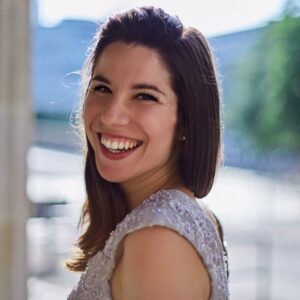
Andrea Casarrubios
Praised by The New York Times for having "traversed the palette of emotions" with "gorgeous tone and an edge of-seat intensity" and described by Diario de Menorca as an "ideal performer" that offers "elegance, displayed virtuosity, and great expressive power," Spanish-born cellist and composer Andrea Casarrubios has played as a soloist and chamber musician throughout Europe, Asia, Africa, and the Americas. First Prize winner of numerous international competitions and awards, Casarrubios has appeared at Carnegie Hall, Walt Disney Concert Hall, Lincoln Center, and the Piatigorsky, Ravinia, and Verbier Festivals.
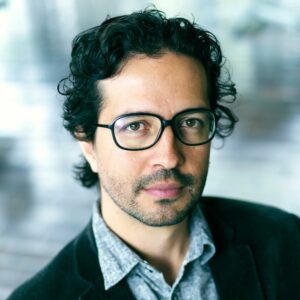
Sebastian Quesada
Sebastian Quesada is a Costa Rican composer interested in exploring the ambiguous and subjective nature of music to evoke specific imagery. Through a blend of diverse genres and processes, his compositions aim to explore musical narratives that are connected to our cultural and social perceptions. His work spans a variety of media, including large and chamber ensembles, rock music, incidental works, installations, and more. This diverse range of mediums has contributed to his intention of synthesizing different elements to explore extra-musical concepts.
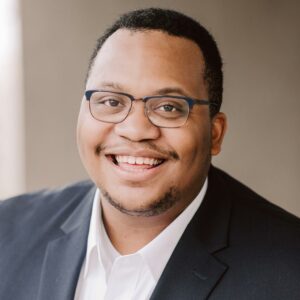
Kevin Day
An American whose music has been characterized by "propulsive, syncopated rhythms, colorful orchestration, and instrumental virtuosity," (Robert Kirzinger, Boston Symphony) composer Kevin Day has quickly emerged as one of the leading young voices in the world of music composition today, whose music ranges from powerful introspection to joyous exuberance. Kevin Day is an internationally acclaimed composer, conductor, and pianist, whose music often intersects between the worlds of jazz, minimalism, Latin music, fusion, and contemporary classical idioms.

Mario Oyanadel
Mario Oyanadel is a Chilean composer holding a B.A. in Composition from the University of Chile. His work is shaped by a diverse catalog that includes solo and ensemble chamber music, orchestral works, interdisciplinary pieces, scenic music, and performance. He has participated in various festivals including the Thailand Contemporary Music Festival, the Alba Rosa Viva! Festival, the University of Chili Contemporary Music Festival, among others. He has also received numerous international and national awards such as 1st place in the “Composition Contest Luis Advis 2017,” Chile.
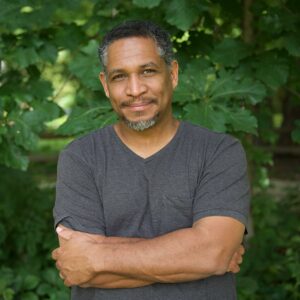
Carlos Carrillo
Born in San Juan, Puerto Rico, composer Carlos Carrillo holds degrees from the Eastman School of Music (B.M.), Yale University (M.M.), and the University of Pennsylvania (Ph.D.). He is the recipient of numerous awards, including the Bearns Prize, the Charles Ives Scholarship from the American Academy of Arts and Letters, BMI, and ASCAP awards. He has been commissioned by Music and the Anthology, Casals Festival, the New York Youth Symphony, Concert Artists Guild, and Boston Opera Collaborative, among others.
